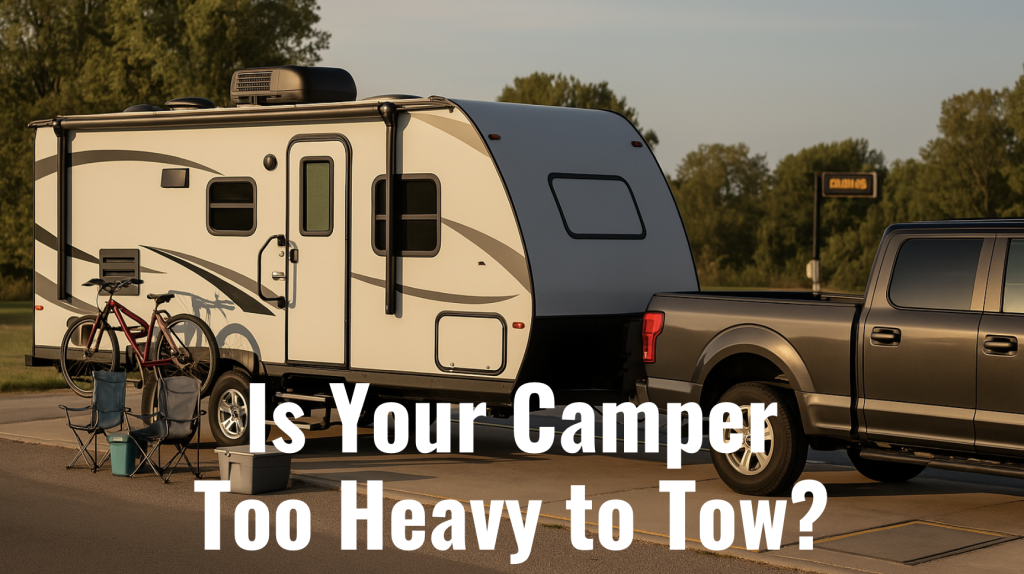Are you curious about the average camper weight? Understanding the weight of your RV or travel trailer is crucial for safe towing, fuel efficiency, and campground access.
Many new and experienced RV owners underestimate the importance of knowing their vehicle’s weight specifications.
From lightweight pop-ups to massive fifth wheels, each camper type falls within specific weight ranges that impact everything from your tow vehicle requirements to where you can travel.
Exceeding weight limits can damage your vehicle, void warranties, and create dangerous driving conditions.
Our expert analysis covers essential weight information for every camper category, vital weight ratings, and smart load management strategies. Learn how proper weight management leads to safer, more enjoyable camping adventures.
Camper Weight at a Glance: Averages by Type and Length
Want to know how much your dream camper might weigh? Let’s break it down with some easy-to-follow numbers!
| Camper Type | Length | Weight Range | Towing Vehicle |
|---|---|---|---|
| Small Towables | 10-15 ft | 1,000-3,000 lbs | Cars, Small SUVs |
| Mid-Range Campers | 16-24 ft | 2,500-7,500 lbs | Half-ton Trucks |
| Heavy-Duty Options | 25+ ft | 4,500-15,000 lbs | 3/4 or 1-ton Trucks |
| Motorized (Class B/C/A) | Various | 6,000-30,000 lbs | No towing needed |
The weight of your camper affects everything from fuel costs to road access. Smaller units offer better mobility and gas mileage, while larger ones provide more living space but cost more to move.
Always check both the empty weight and the maximum loaded weight before making your choice!
What Actually Affects Camper Weight?
Camper weight isn’t just about size. Several hidden factors can add hundreds or even thousands of pounds to your rig:
1. Construction Materials
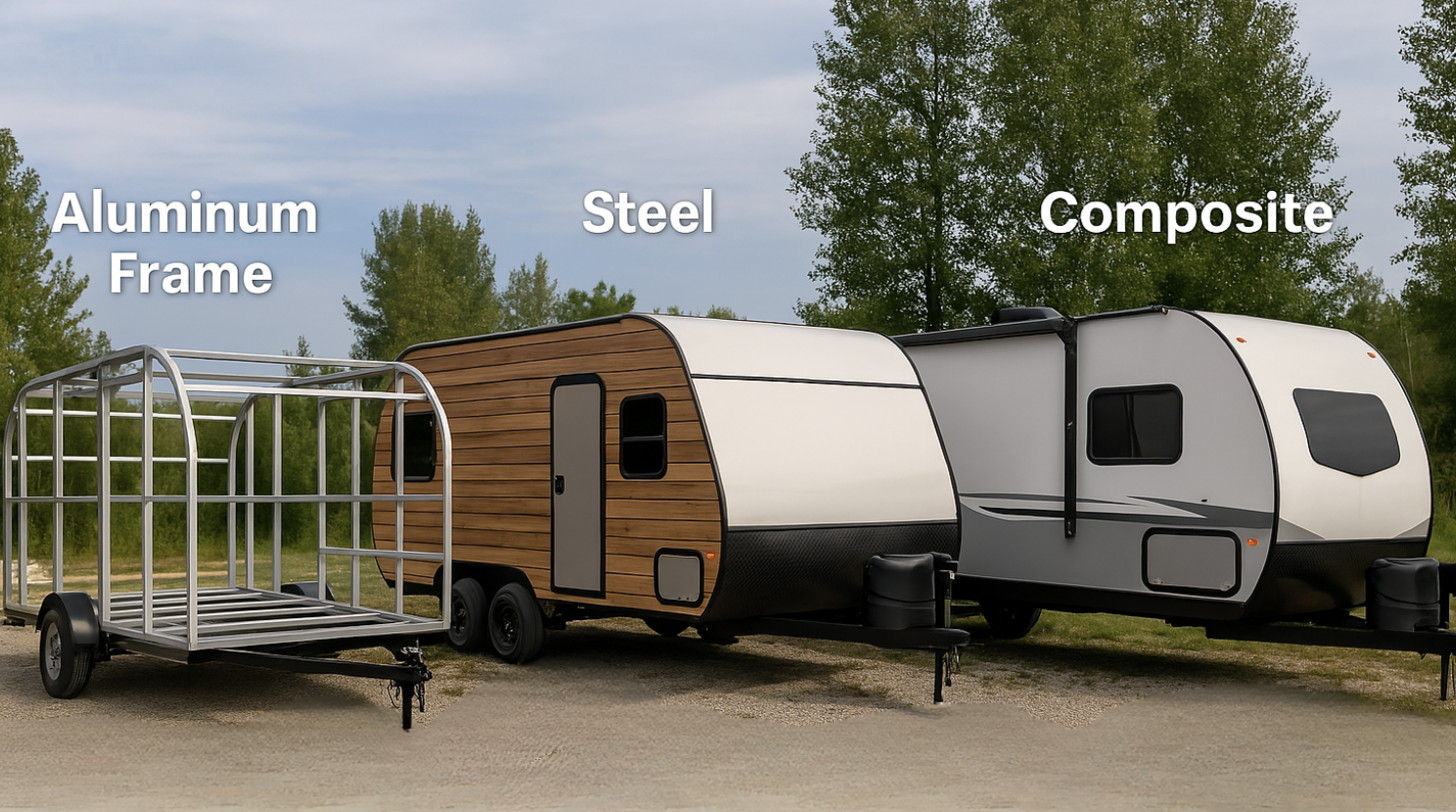
Aluminum frames can save 500-1,500+ lbs compared to steel construction. Fiberglass exteriors are typically lighter than traditional wood siding but might cost more.
Modern composites offer weight savings while maintaining strength, which is important when reducing overall weight for easier towing.
2. Built-in Features
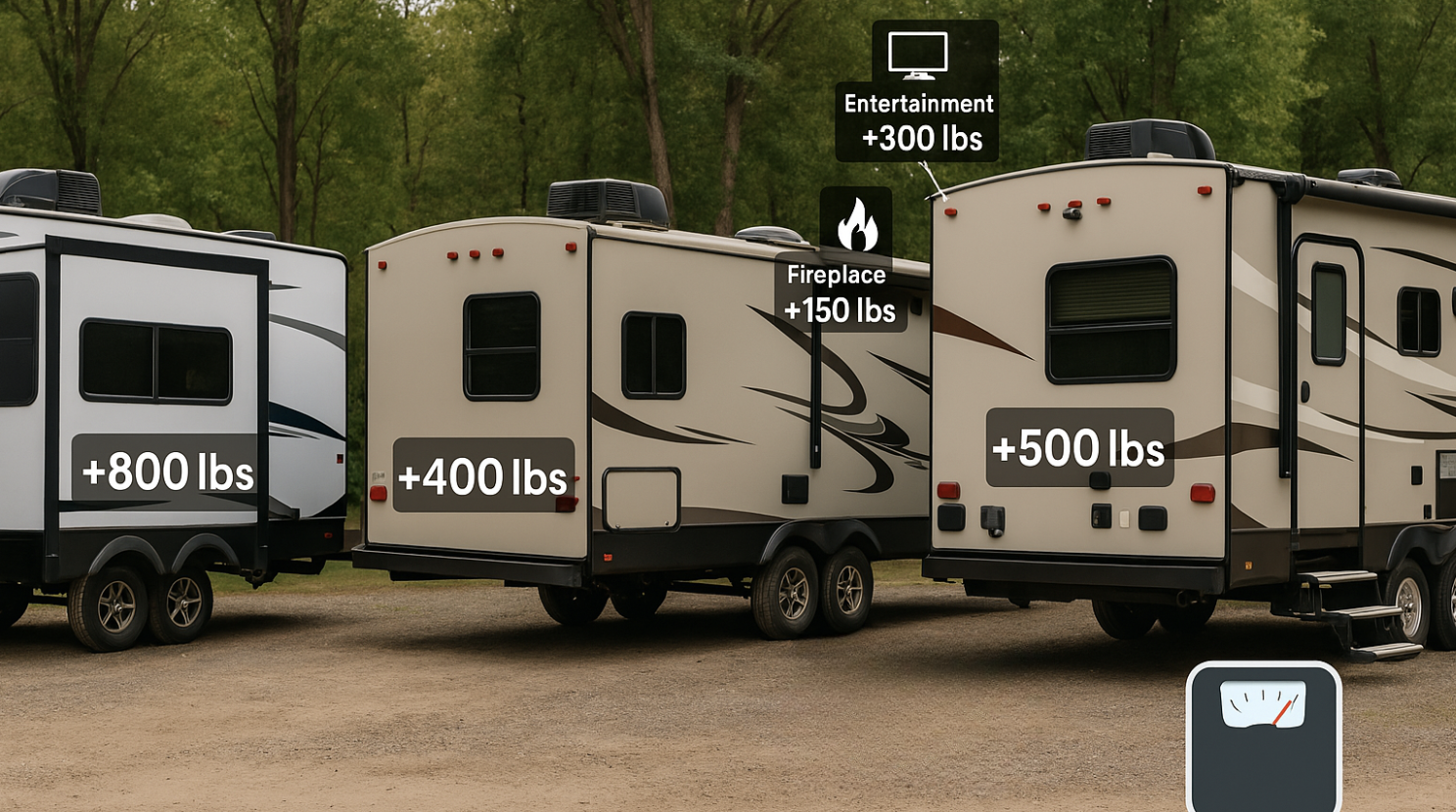
Each luxury addition costs you in weight. A single slide-out can add 800+ lbs, while full bathrooms with tubs might add 400+ lbs.
Kitchen setups with large fridges, ovens, and microwaves quickly stack up another 300-500 lbs. Entertainment centers, fireplaces, and washer/dryer units can each add 100-300 lbs to your total.
3. Water & Fuel Systems
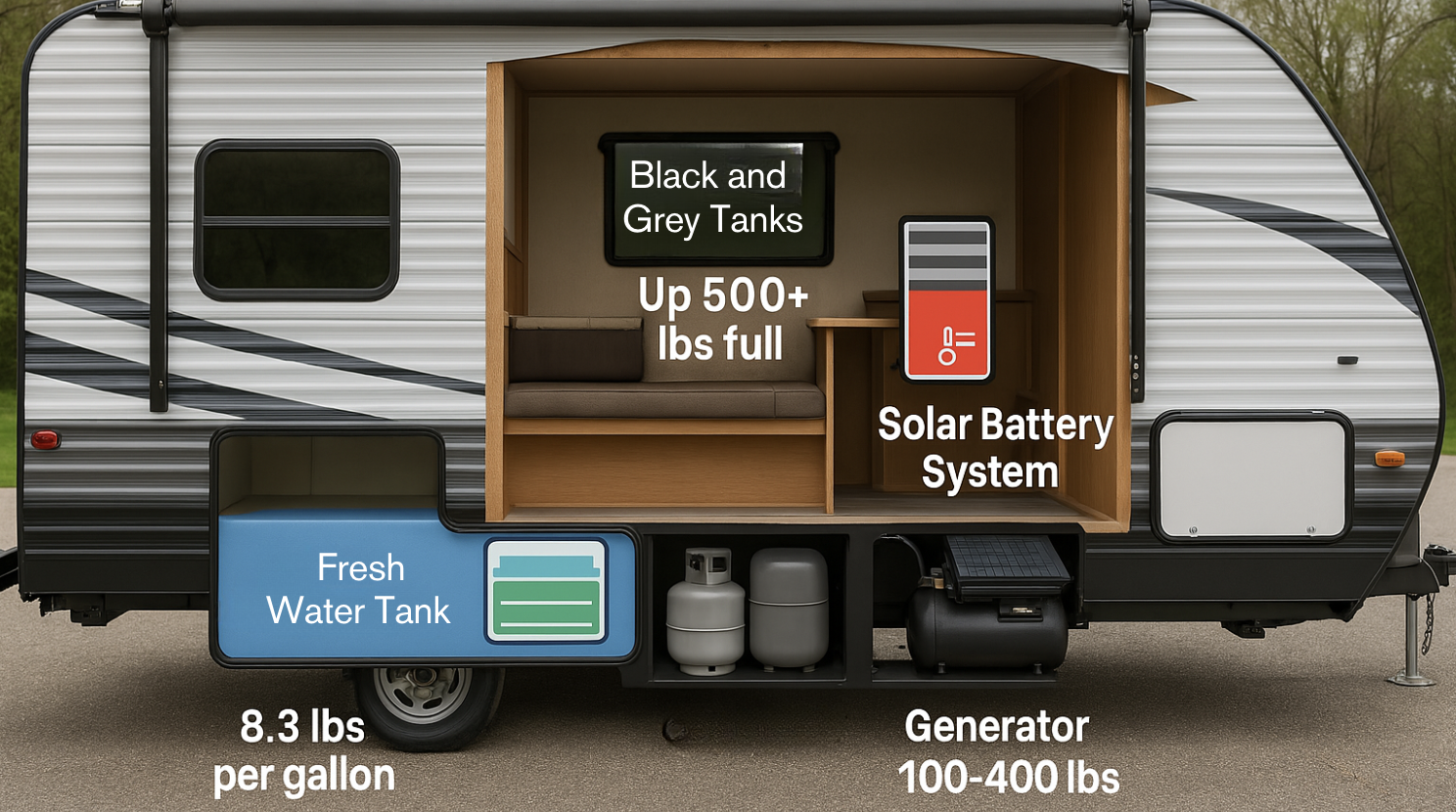
When full, fresh water tanks (8.3 lbs per gallon) plus black and gray water tanks can total 500+ lbs.
Propane tanks, generators, and solar battery systems contribute another 100-400 kg, depending on capacity. Many newcomers forget that liquids add significant weight to the final total.
4. Personal Cargo
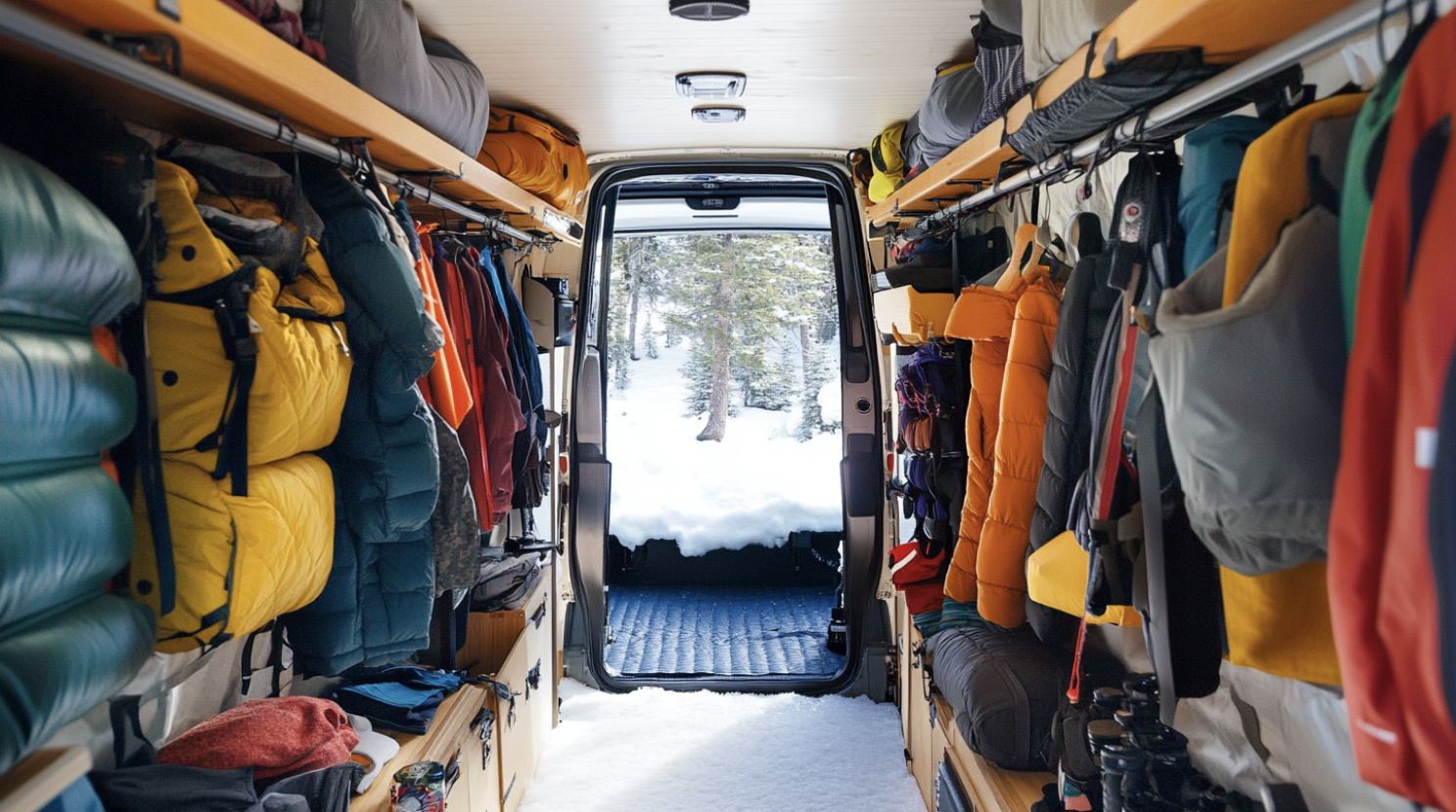
Most people miscalculate here. Clothes, food, tools, outdoor gear, and electronics typically add 1,000-1,500 lbs to your setup.
For families, this number can be even higher. Seasonal items like winter clothing or summer sporting equipment can quickly exceed one’s weight limits if not carefully planned.
The difference between a bare-bones camper and a fully loaded one can exceed 3,000 lbs—enough to change what vehicle you need for towing! Always plan for your camper’s maximum weight, not its empty weight.
Understand These Camper Weight Terms
Without knowing these key weight terms, you risk unsafe towing, costly tickets, and damage to your camper and tow vehicle:
1. UVW (Unloaded Vehicle Weight or Dry Weight)
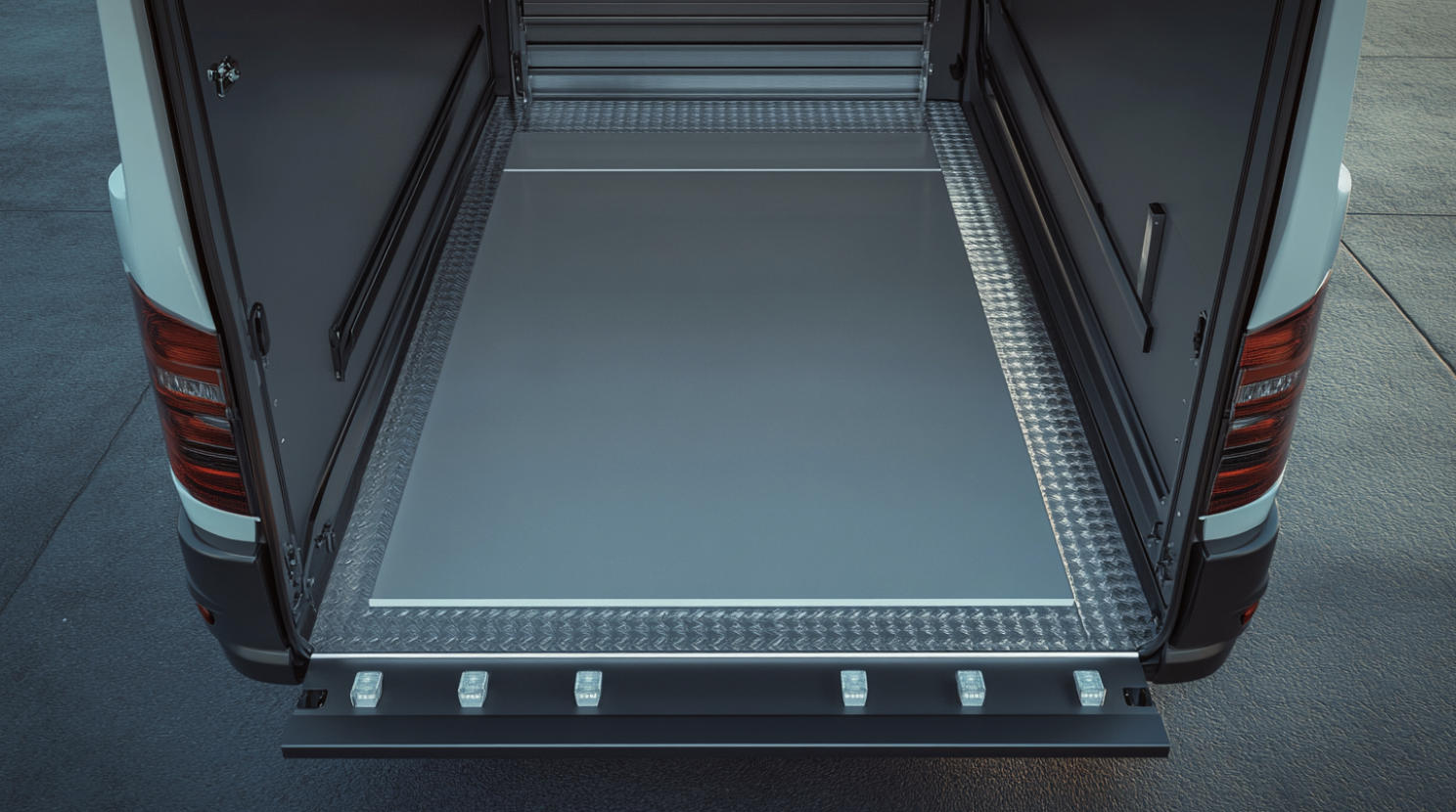
This is how much your camper weighs when it rolls off the factory floor—without water, gear, food, or clothing.
Manufacturers often list this prominently, but it’s always lower than what you’ll actually be towing once you load up.
2. GVWR (Gross Vehicle Weight Rating)
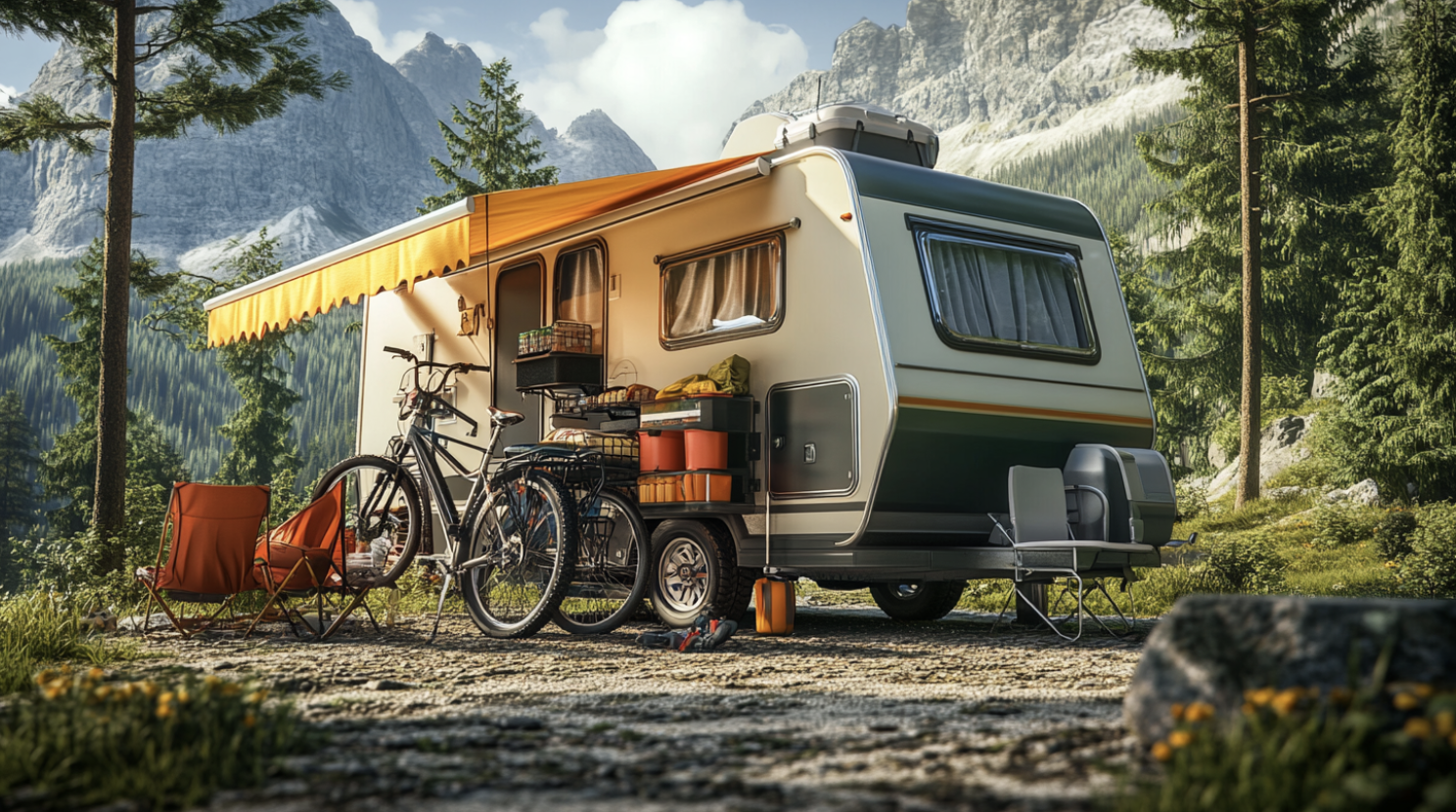
The absolute maximum weight your camper is designed to handle safely – including everything inside it.
Going over this limit can cause tire blowouts, frame damage, and handling problems. This number is non-negotiable!
3. CCC (Cargo Carrying Capacity)
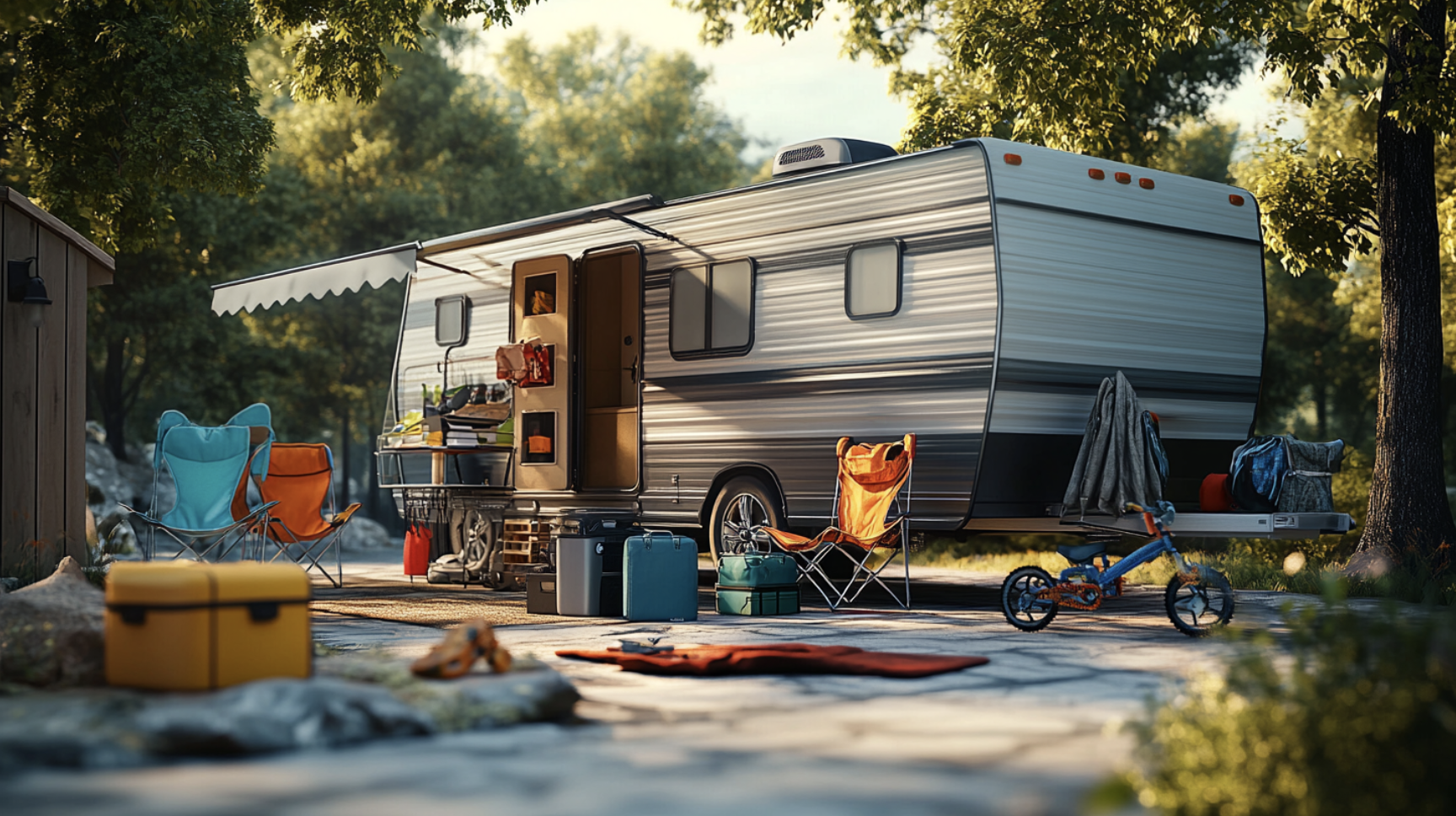
The amount of stuff you can actually add to your camper, calculated as GVWR minus UVW. For a family camping trip, a CCC of at least 1,000-1,500 lbs is usually needed.
4. GAWR (Gross Axle Weight Rating)
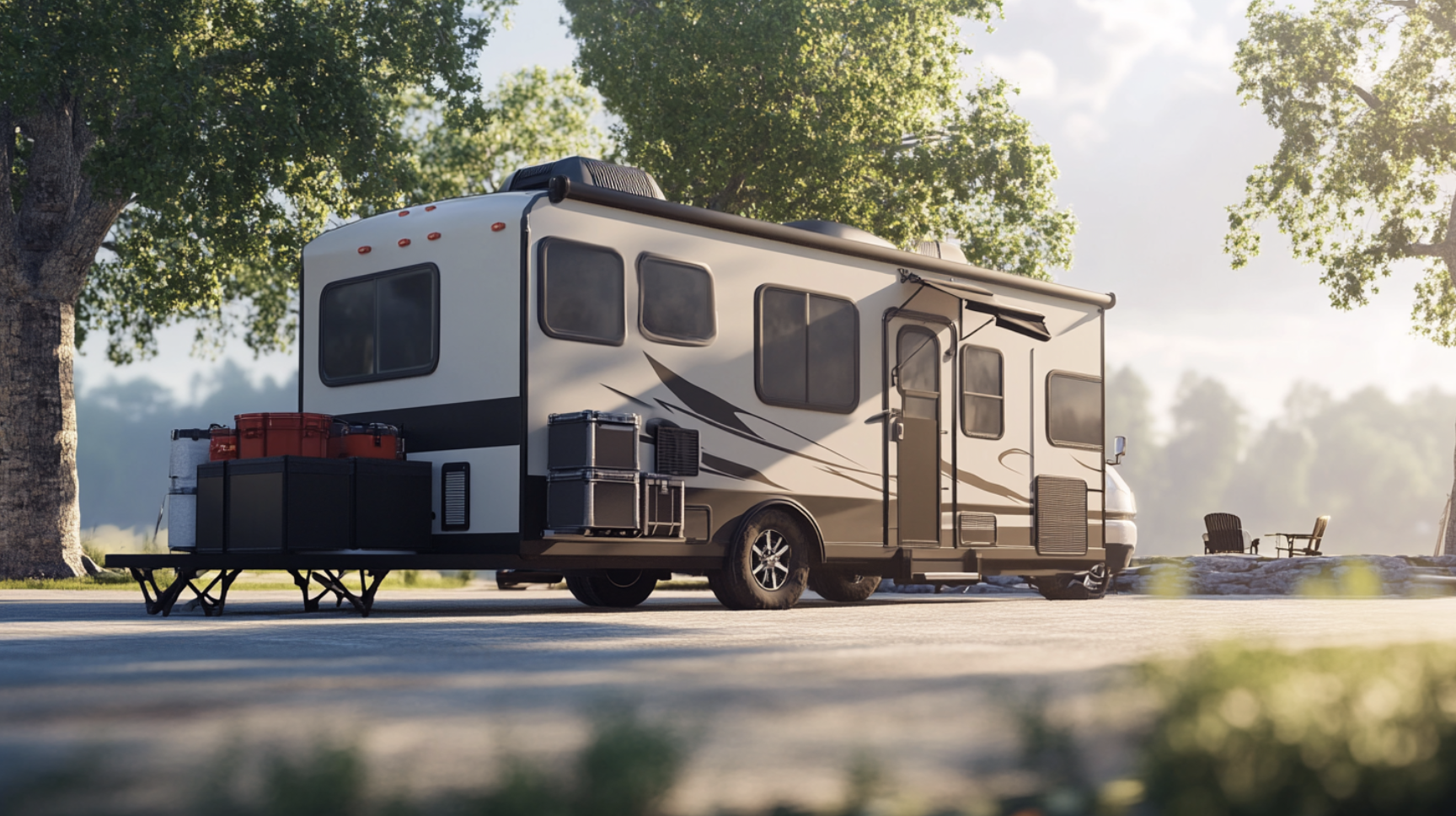
Maximum weight each axle can handle. Even if you’re under GVWR, uneven loading can overload an individual axle, causing dangerous handling issues.
5. Hitch/Tongue Weight
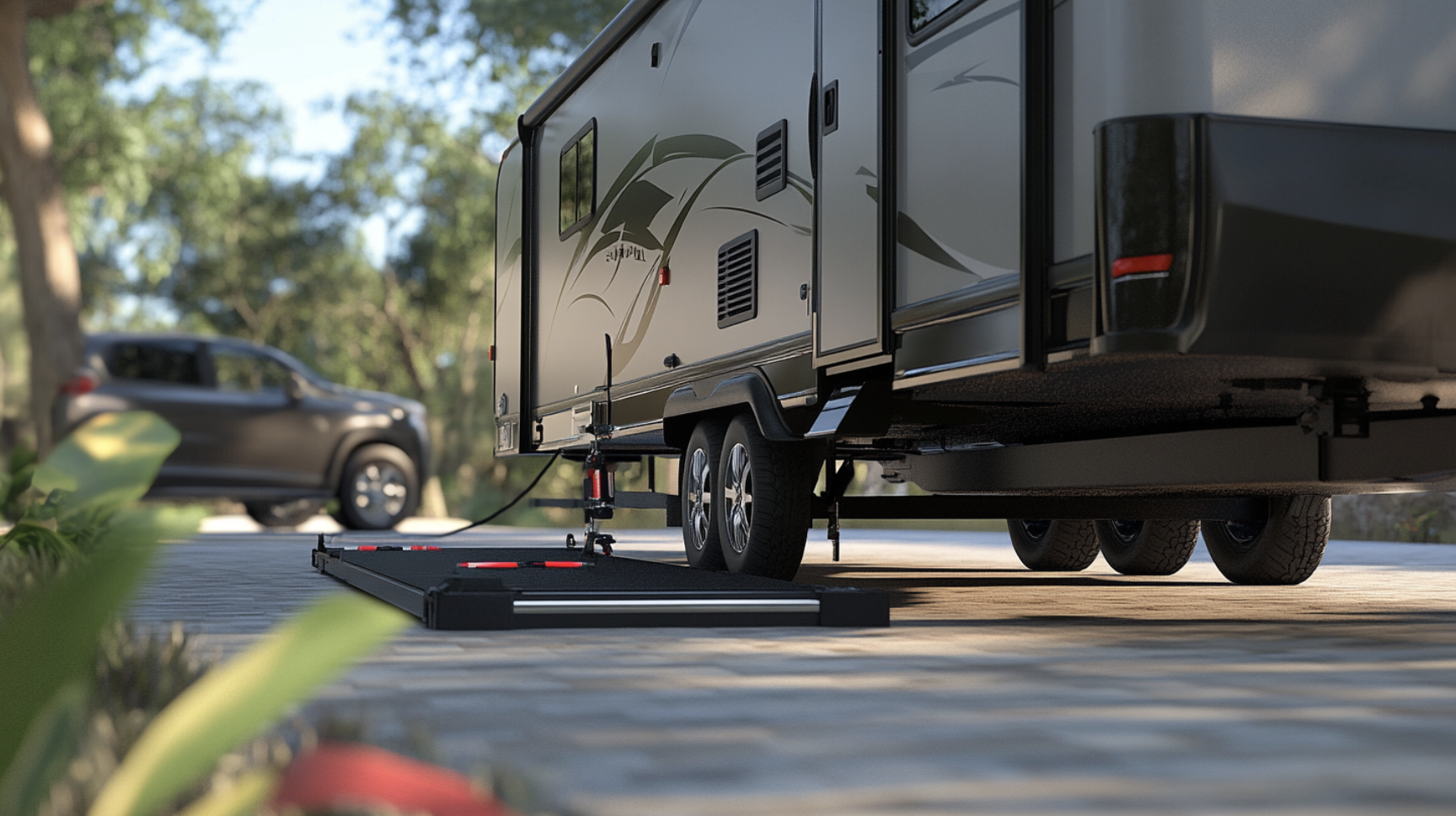
The downward force on your vehicle’s hitch. For travel trailers, this should be 10-15% of the total trailer weight. Too little or too much tongue weight makes towing unstable.
6. GCWR (Gross Combined Weight Rating)
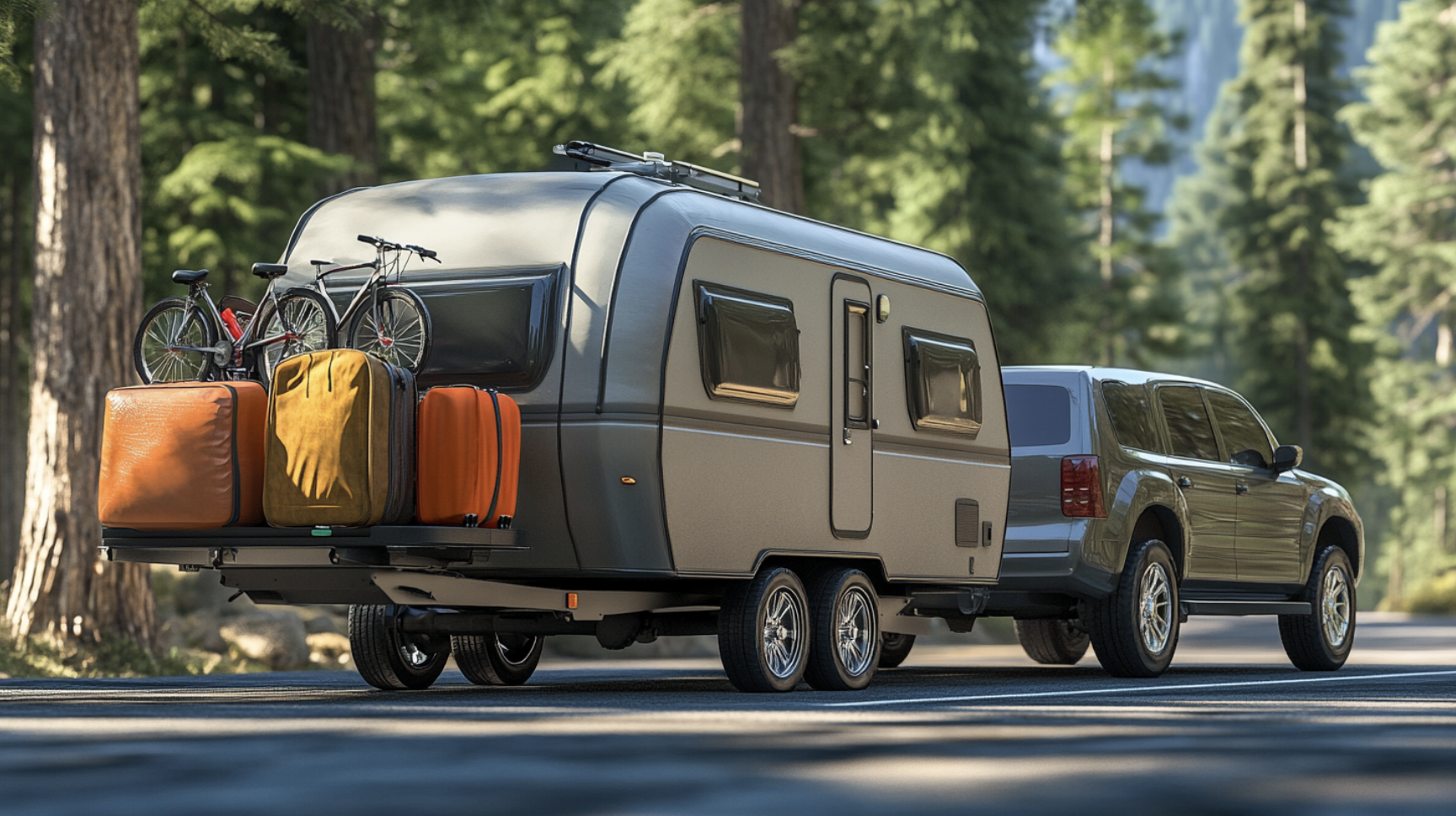
The maximum allowed weight of your tow vehicle plus the camper and all its contents is the number that matters for safe towing.
Can Your Vehicle Handle It?
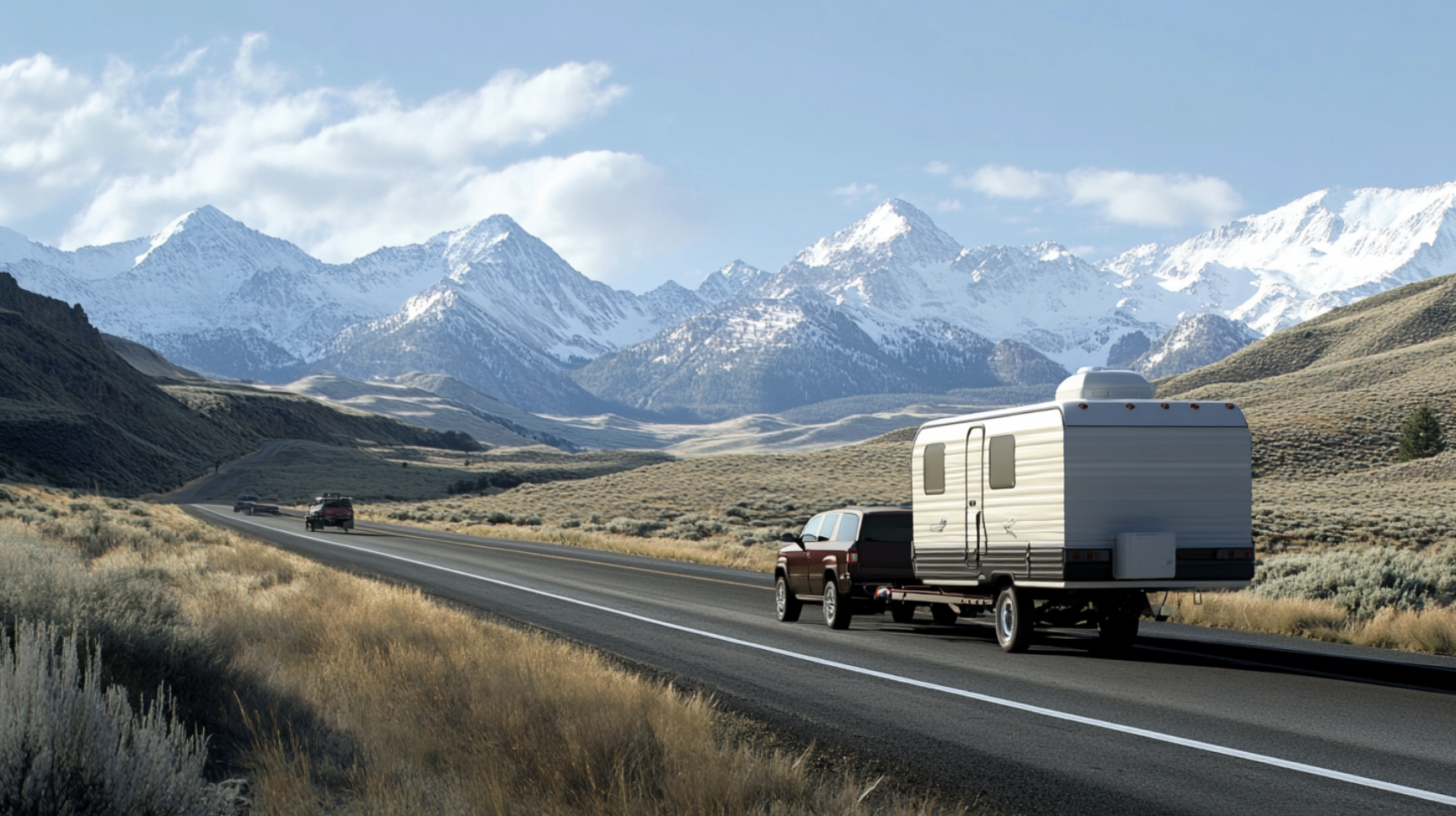
Finding the right match between your vehicle and camper is crucial for safety:
1. How to Calculate Safe Towing Range?
Take your vehicle’s maximum tow rating and subtract the weight of passengers and cargo in your tow vehicle. This gives you the actual available towing capacity. For example, a truck rated for 10,000 lbs with 1,000 lbs of people and gear can safely tow up to 9,000 lbs.
2. The 80/20 Rule for Beginners
For new RVers, aim to use only 80% of your maximum towing capacity. This safety margin helps compensate for challenging conditions like mountain roads, high winds, or emergencies where you need extra control.
3. Real-World Towing Examples
- Mid-size trucks (Ford Ranger, Chevy Colorado): Best for small trailers under 5,000 lbs
- Half-ton trucks (F-150, RAM 1500, Silverado 1500): Good for most travel trailers up to 7,000-9,000 lbs
- Three-quarter-ton trucks (F-250, RAM 2500): Needed for larger fifth wheels and toy haulers up to 14,000 lbs
- One-ton trucks (F-350, RAM 3500): Required for the largest fifth wheels over 15,000 lbs
4. Why Do Hitch Weight and GCWR Matter Most?
Many people focus only on the tow rating, but hitch weight affects your vehicle’s steering, braking, and suspension. Too much hitch weight can lift your front wheels, reducing steering control.
Meanwhile, GCWR ensures your entire setup (vehicle plus trailer) isn’t too heavy for safe stopping – especially important when traveling on mountain roads.
Always verify your vehicle’s exact towing specs from the manufacturer, as options like engine size, axle ratio, and towing packages can drastically change capacity.
Where (and How) to Weigh Your Camper Like a Pro?
Guessing your camper’s weight is risky business. Here’s how to get accurate numbers:
1. CAT Scales: The Trucker’s Method
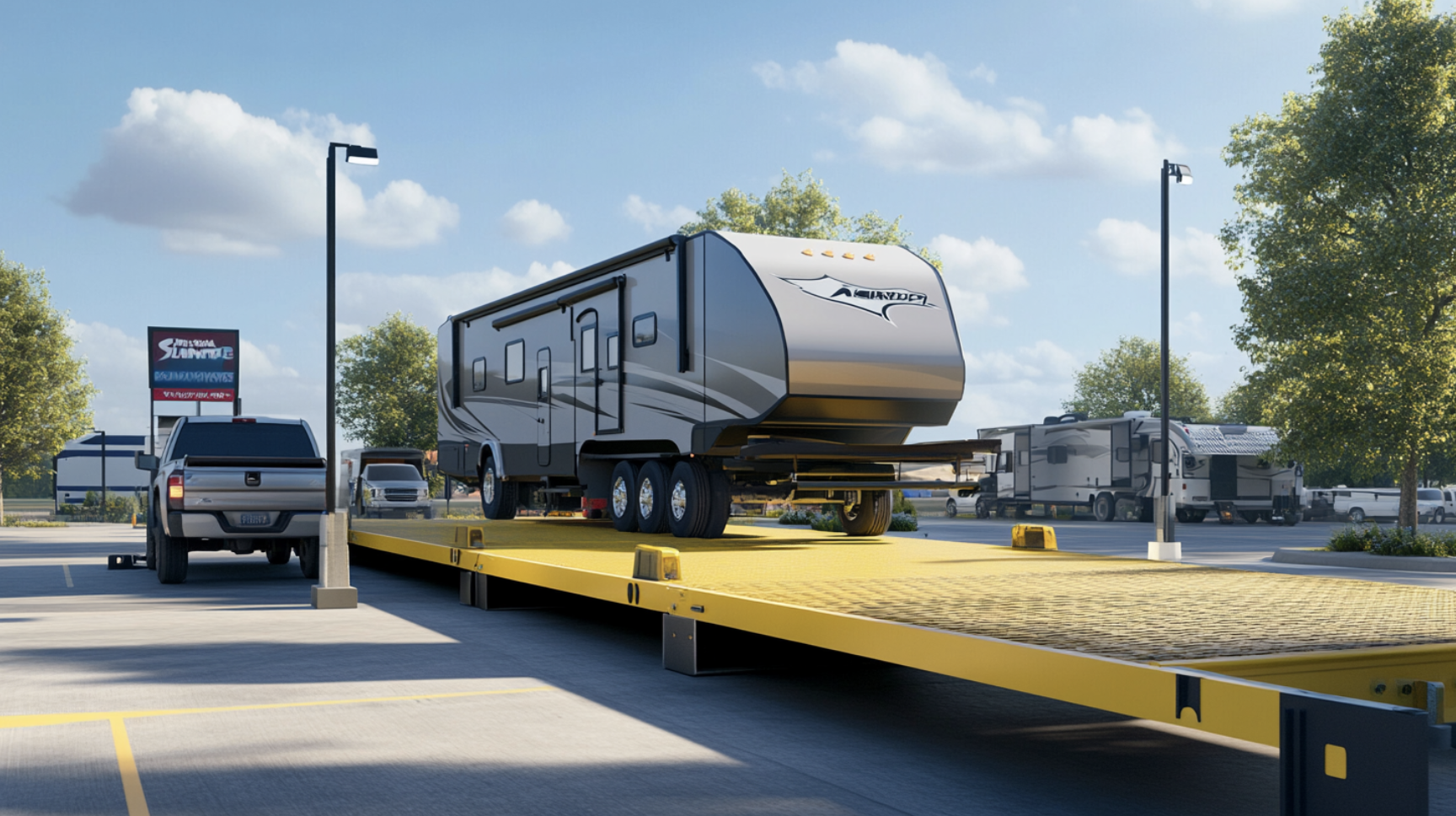
These commercial truck scales are available nationwide at most truck stops. For $15-20, you can weigh your entire setup and get a printed ticket. They are best for travel trailers and fifth wheels since you can pull up with your tow vehicle attached.
The advantage is that you can weigh both your truck and camper in the towing position, giving you real-world numbers. Many have apps showing nearby locations and wait times.
2. RV Dealership Weighing
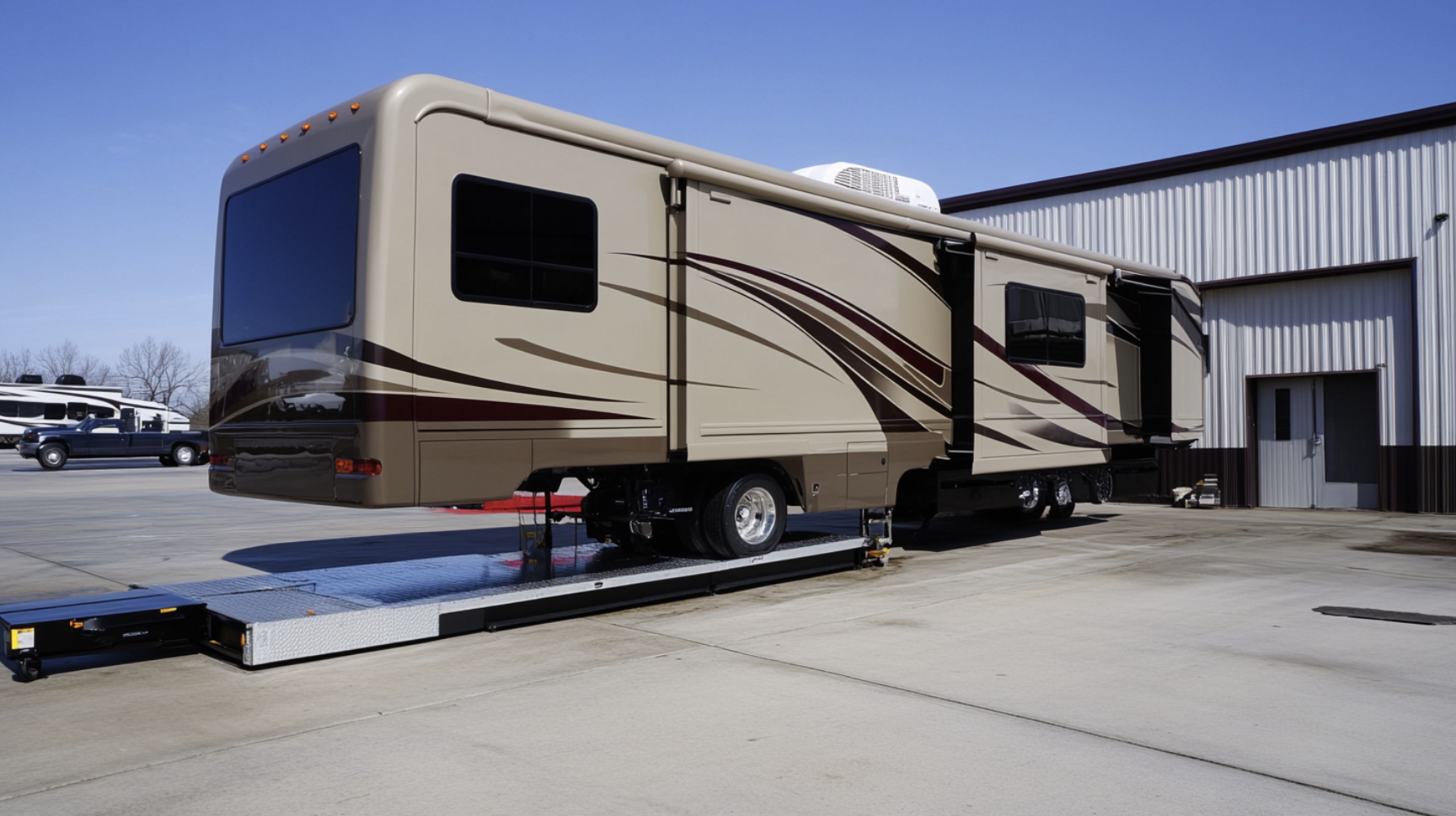
Many dealers offer weighing services for customers. This option works well if you’re buying new and want to verify the weight before leaving the lot. Some will let you weigh for free if you’re a customer.
Dealers often have corner-weight scales that can check each wheel position, helping identify loading problems. Ask if they can check both sticker weights against the actual weight to spot manufacturing discrepancies.
3. RVSEF Events
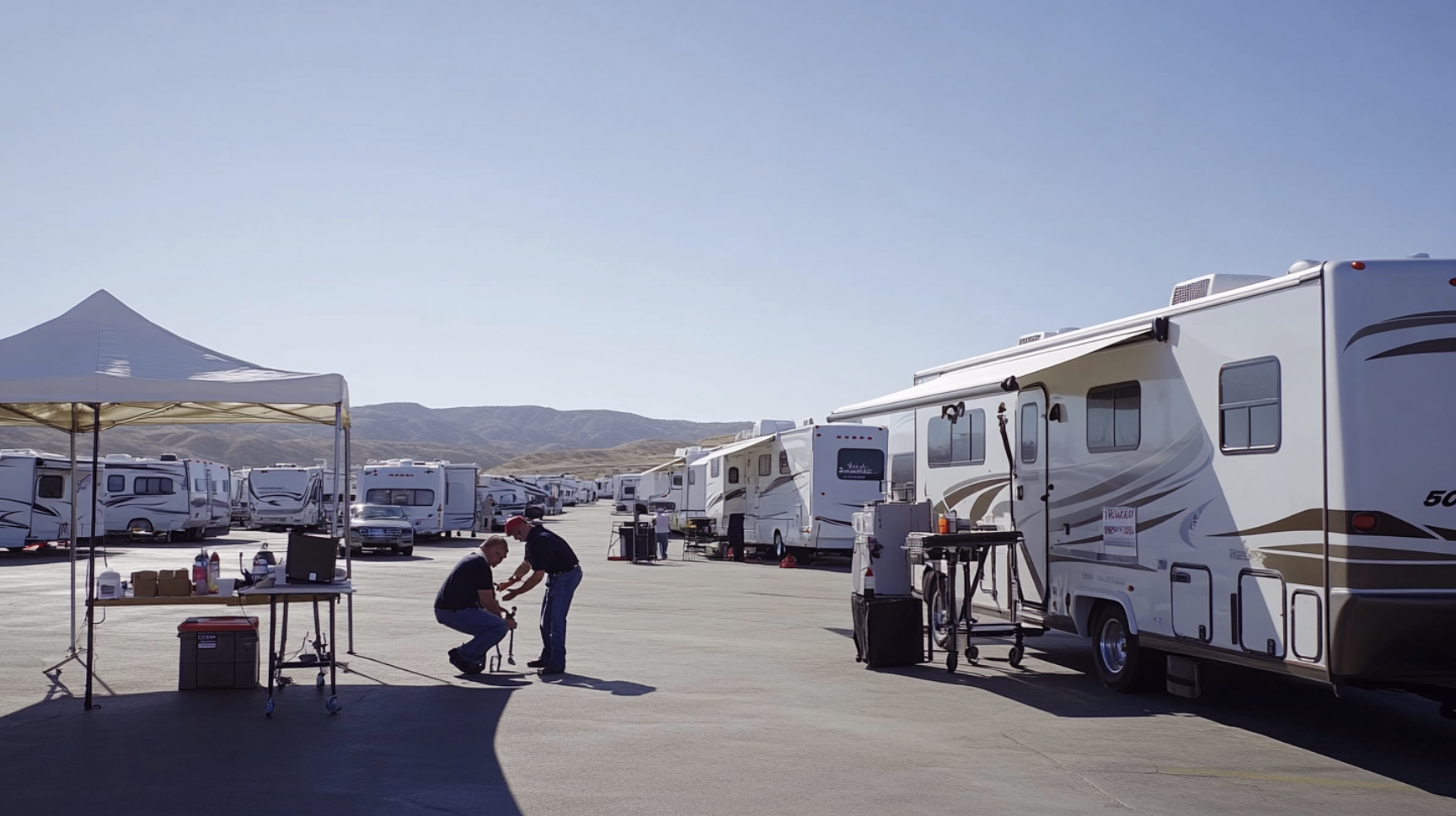
The RV Safety Education Foundation holds weigh-ins at major RV rallies and shows. They provide the most detailed weighing with individual wheel position measurements, helpful for finding imbalances.
Their trained technicians can also offer advice about correcting weight distribution problems and explain what the numbers mean for your specific setup.
4. Proper Weighing Method
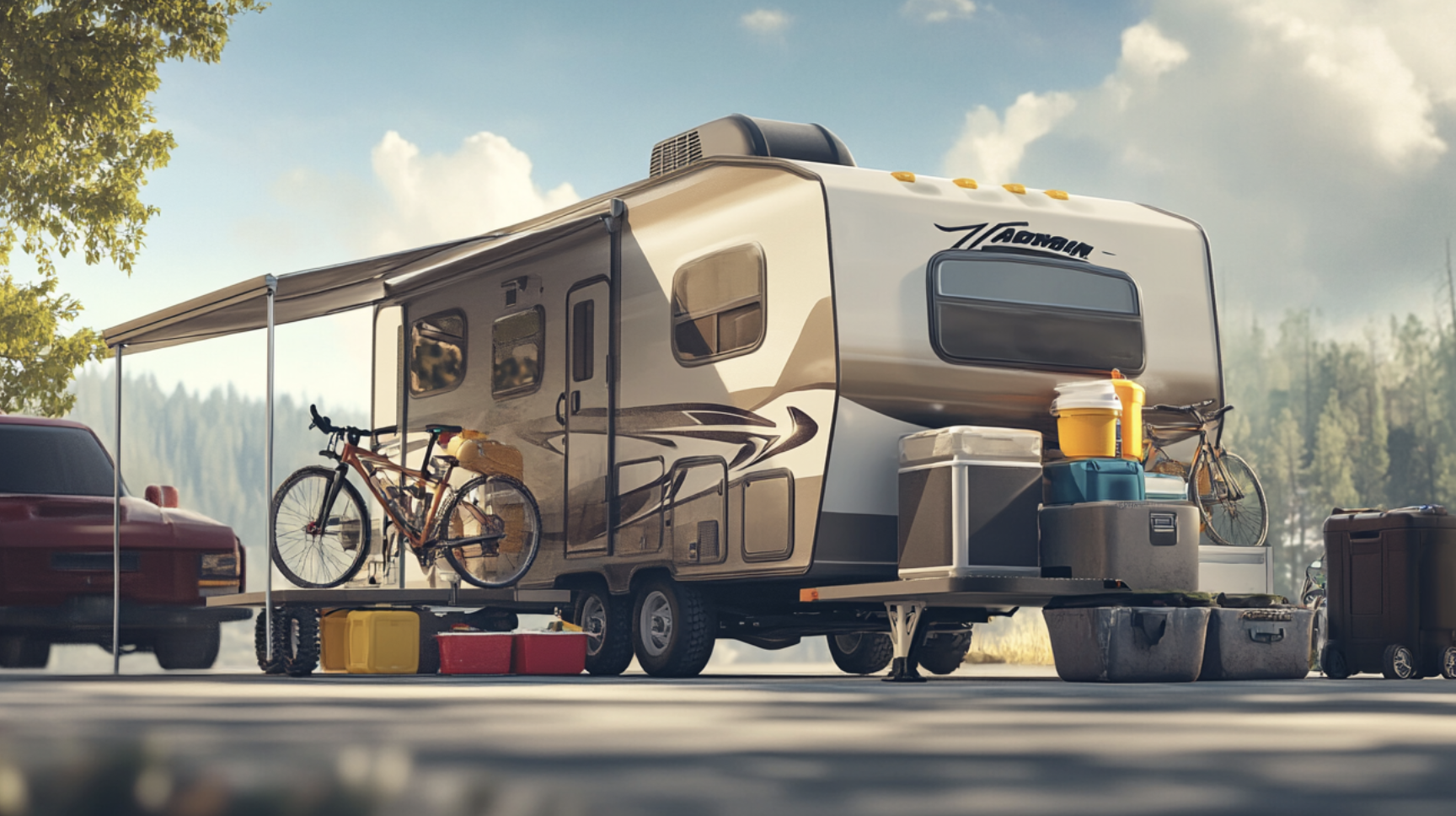
For accurate results, weigh your camper when it’s fully loaded for a typical trip – with full water tanks, food, clothing, and gear. This gives you your true traveling weight.
To find the actual cargo weight, weigh again with the tanks empty and subtract from the loaded weight. Many owners are shocked to discover they’re carrying 1,000+ pounds more than they estimated.
Overweight Mistakes That Cost More Than Fuel
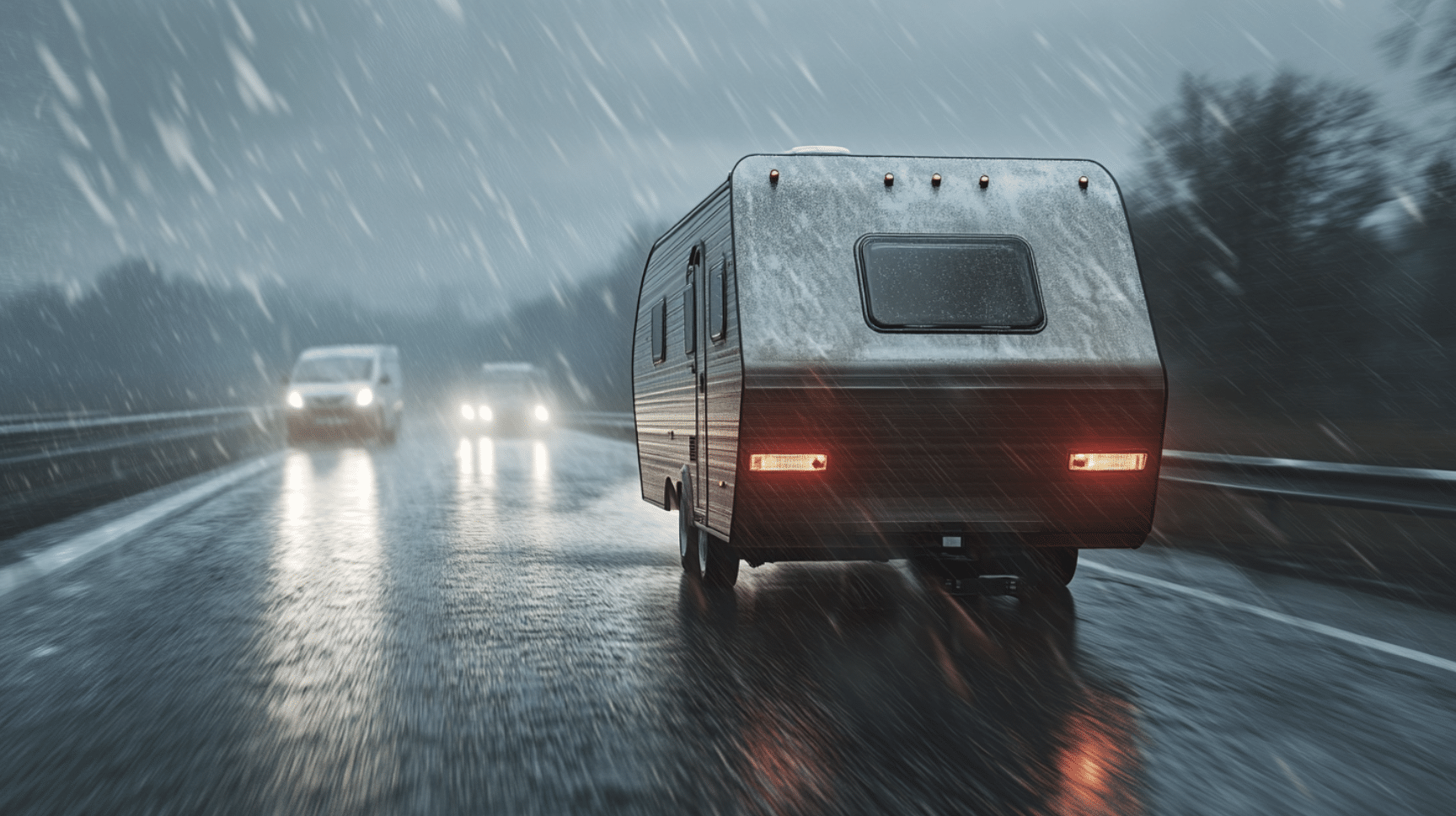
Ignoring weight limits isn’t just about poor gas mileage – it creates serious safety and financial risks:
Mechanical Failures
Overloaded campers commonly experience brake failures when the system can’t handle the extra mass. Tire blowouts become much more likely as excess weight creates more heat and stress than tires can handle.
Suspension components wear out faster, creating costly repairs. Transmission failures in tow vehicles are especially common and can cost $3,000-5,000 to repair when pushed beyond their limits.
Legal Issues
Highway weigh stations can and do stop RVs, especially larger ones. Fines for overweight campers can range from $150 to thousands of dollars, depending on the state and how much you exceed limits.
Some states require a CDL if your combined weight exceeds 26,000 pounds. If overweight is determined to be a contributing factor in accident situations, it can create liability issues with insurance.
Warranty Problems
Many manufacturers include clauses that void warranties if the RV is found to be consistently overloaded. When filing a claim, they may check for evidence of overloading before approving repairs.
This can be especially problematic with slide mechanisms, axles, and frame components where stress damage is common. Some manufacturers now install monitoring systems that record weight data.
Handling Dangers
Perhaps most concerning, overweight campers are more prone to dangerous sway, difficult steering, and in extreme cases, rollovers during emergency maneuvers or strong crosswinds.
Stopping distance increases dramatically – an extra 1,000 pounds can add 25+ feet to your stopping distance at highway speeds. This margin could be the difference between a close call and a serious accident.
Smart Packing: Tips to Stay Underweight and Travel Safer
Stay within limits without sacrificing comfort with these practical strategies:
1. Water Management
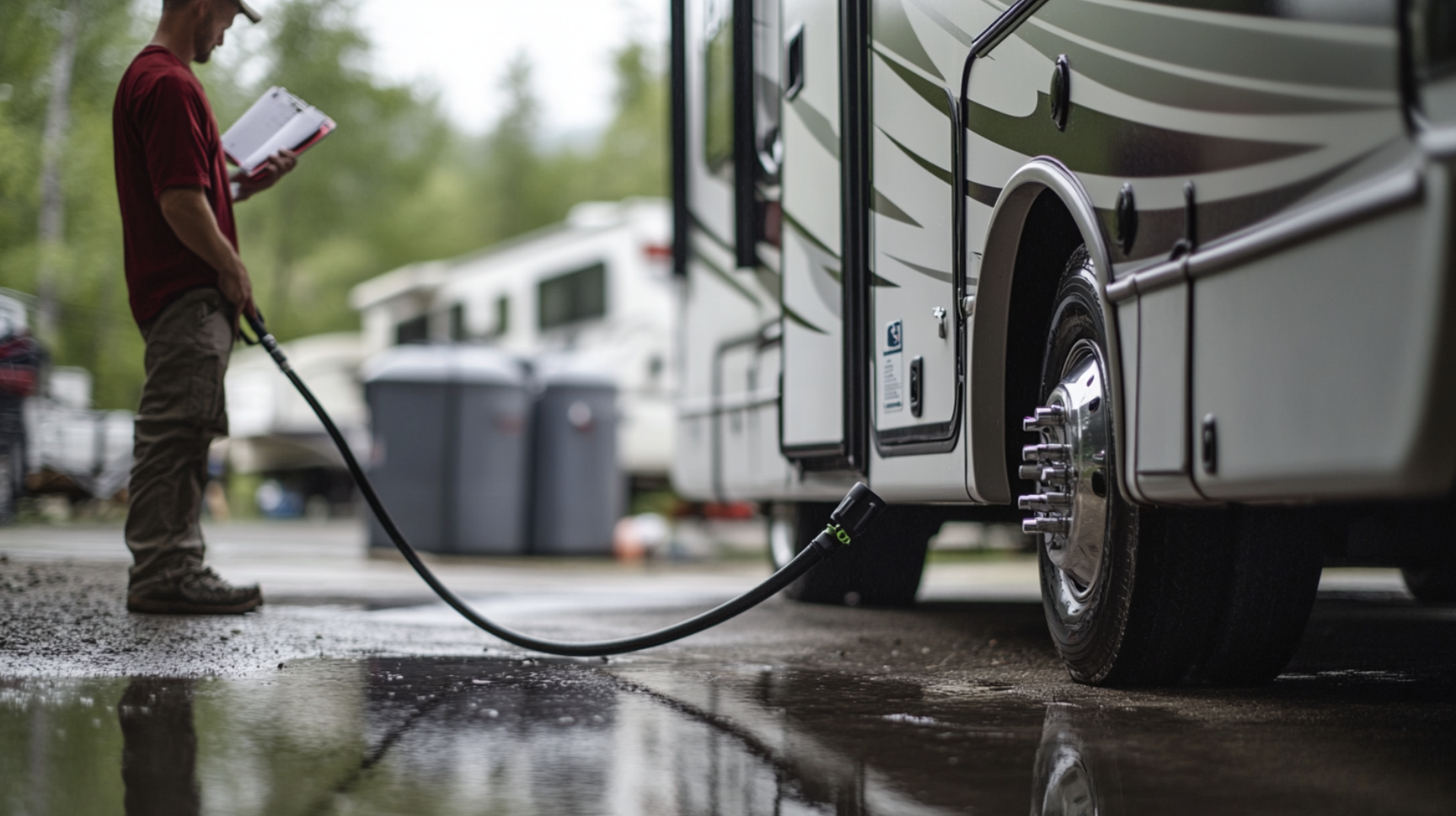
When possible, travel with empty or partially filled water tanks (1 gallon = 8.3 pounds!). Fill up at your destination instead. Empty black and gray tanks before traveling, not just for weight but also to prevent messy backups.
Consider carrying just enough water for bathroom emergencies during travel days – even 20 gallons less saves 166 pounds of weight.
2. Gear Choices
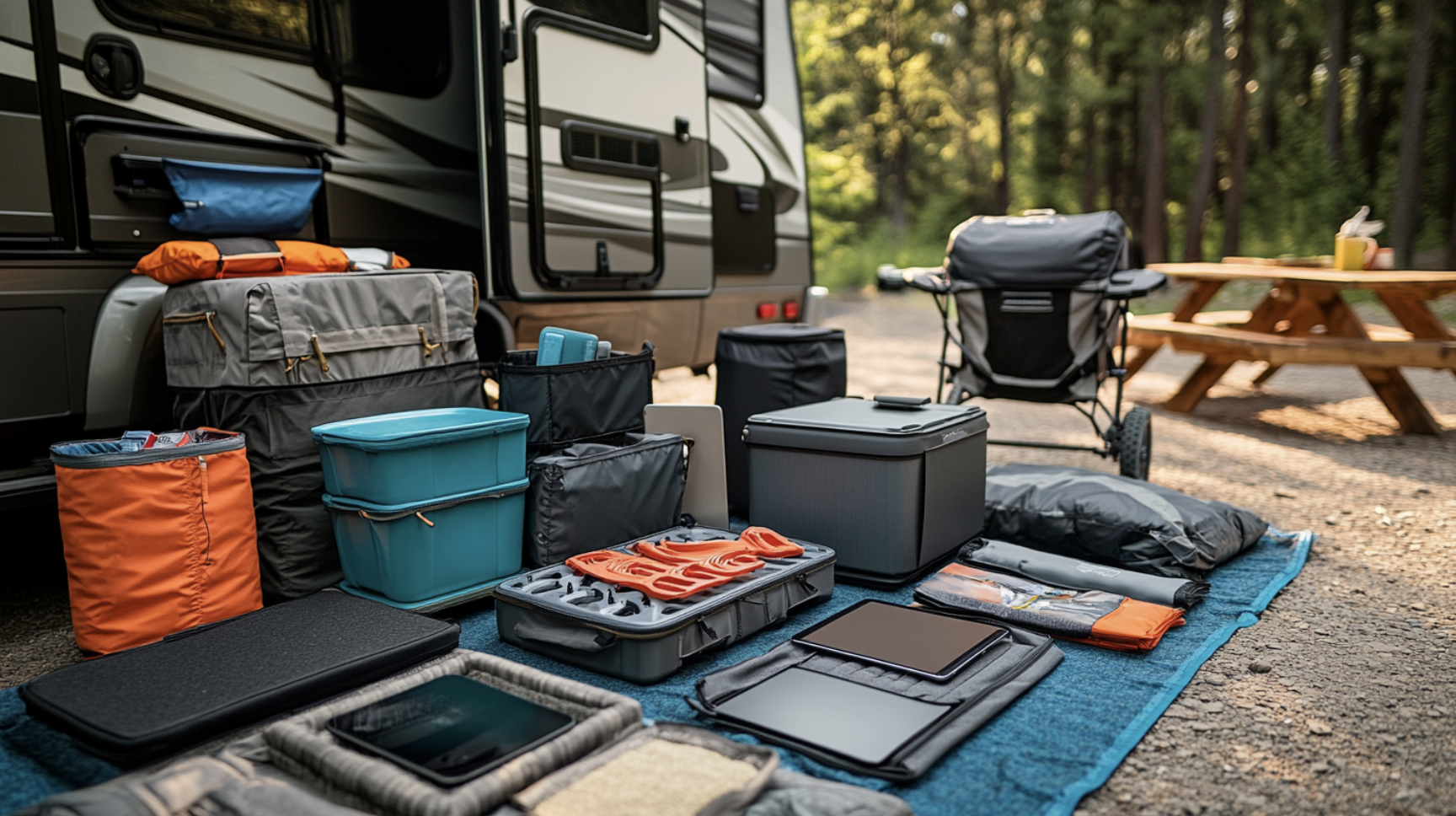
Invest in lightweight, collapsible camping equipment—collapsible kitchenware, fabric storage bins, and inflatable furniture can save hundreds of pounds. Limit heavy books in favor of e-readers, and choose aluminum or titanium grills over cast iron when possible.
Look for camping-specific versions of kitchen tools that often weigh half as much as household versions. Multi-purpose items reduce the total number of things you need to pack.
3. Storage Organization
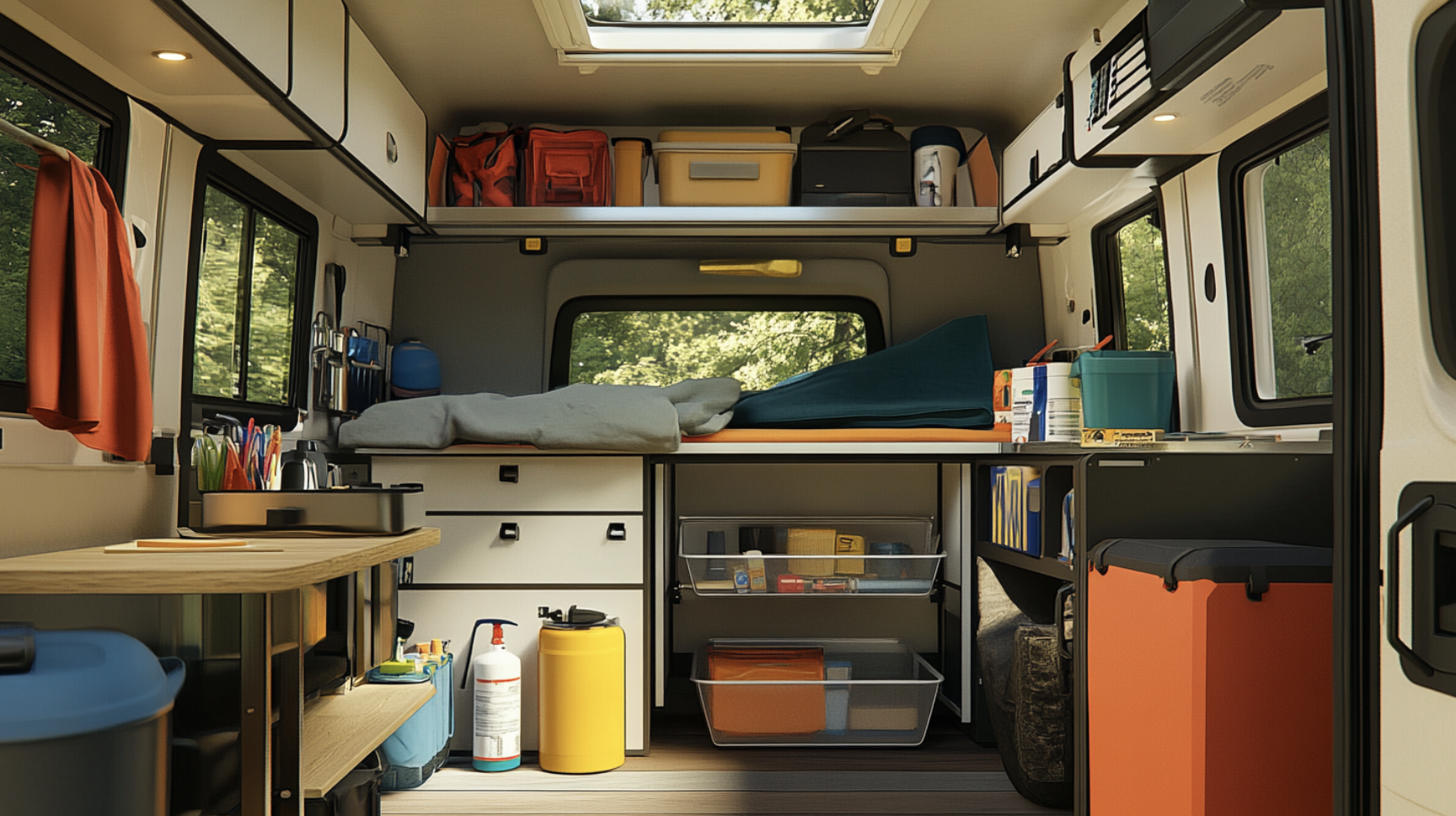
Position heavier items low and centered over the axles, not in the front or rear. This improves handling and reduces tongue weight issues.
Use overhead cabinets for lightweight items only. Keep tools and emergency equipment aboard, but limit duplicates.
Draw a basic floor plan of your camper and mark zones for heavy, medium, and light items to maintain proper weight distribution.
4. Regular Purging
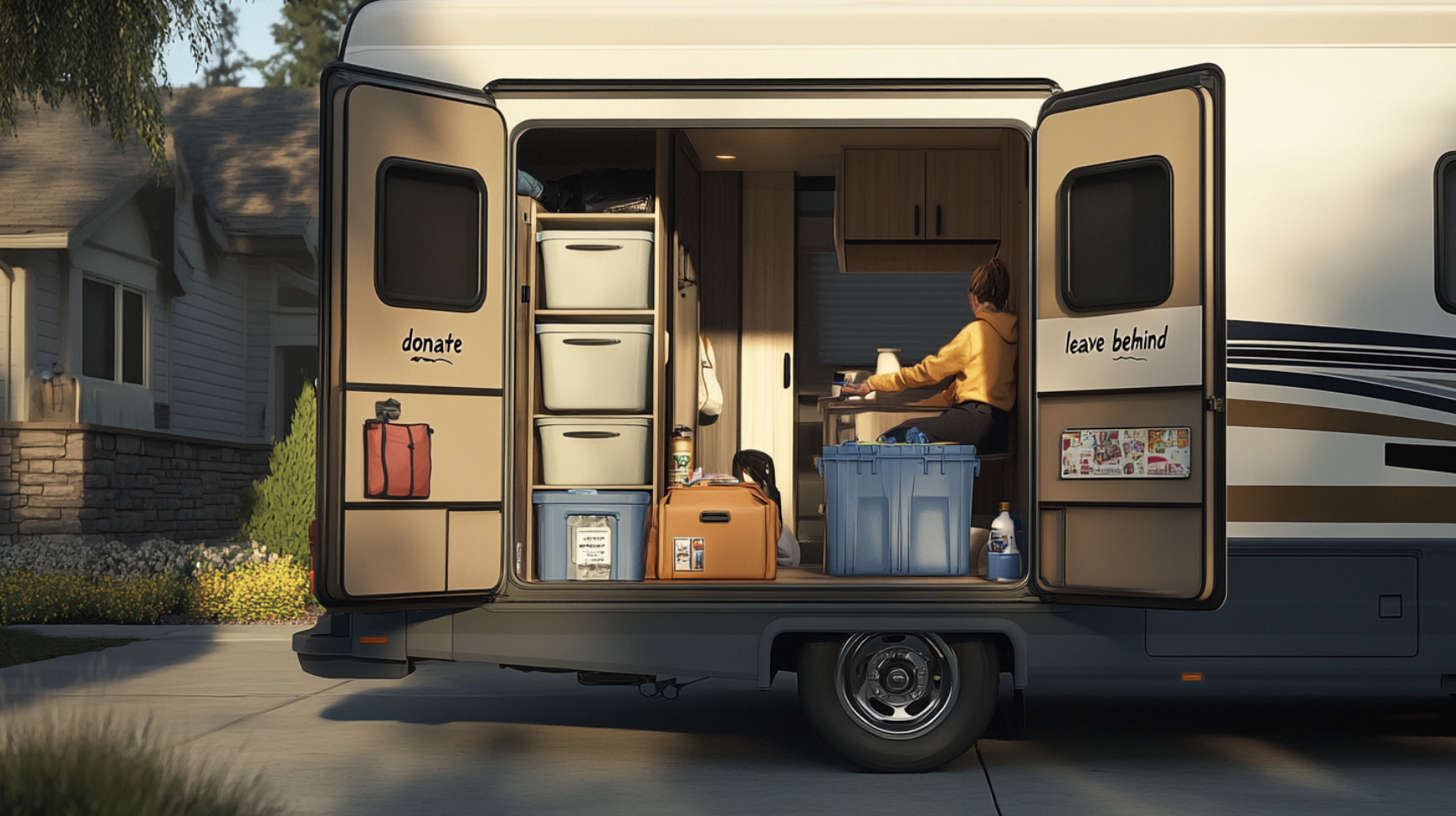
Remove items you didn’t use after each trip. Camping gear tends to accumulate over time, so regular cleanouts prevent weight creep.
Many experienced RVers follow a simple rule: If you haven’t used it in the last three trips, it doesn’t belong in the camper.
Take photos of your storage areas when optimally packed to help you remember where things go and resist the temptation to add “just one more thing” before your next adventure.
Finishing Notes
Knowing the average camper weight for your specific RV type is more than just a technical detail—it’s fundamental to safe, enjoyable travel experiences.
By understanding your camper’s weight specifications and maintaining proper loading practices, you’ll extend your vehicle’s lifespan, improve fuel economy, and avoid costly roadside emergencies.
Remember to weigh your fully loaded RV regularly, especially after modifications or before long journeys.
Armed with this knowledge, you can confidently choose the perfect tow vehicle, plan accessible routes, and focus on what matters most—creating beautiful outdoor memories in your home away from home. Happy camping and safe travels!

